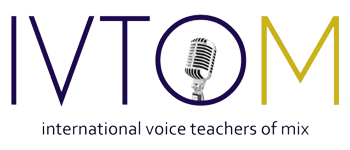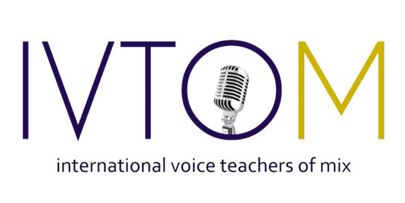

Friday, February 25
19:00 – 02:00 GMT / 12:00 pm – 7:00 pm MST
Saturday, February 26
16:00 – 23:00 GMT / 9:00 am – 4:00 pm MST
Sunday, February 27
15:00 – 22:00 GMT / 8:00 am – 3:00 pm MST
Presenters include:
Acoustic Strategies that Improve Vocal Fold Behavior
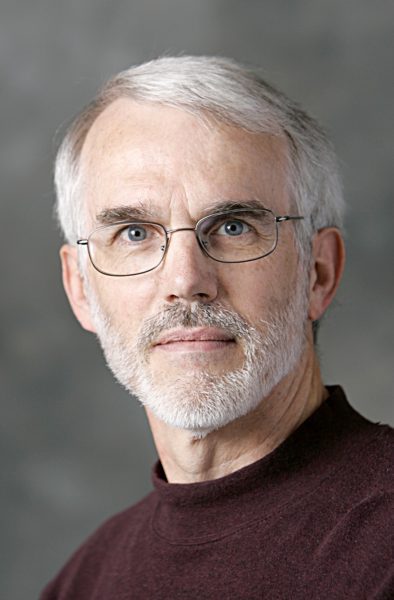

This presentation will explain how laryngeal and acoustic registers interact with and influence each other and why our perception of vocal registers is due to acoustic relationships more than to changes of laryngeal mechanism. Understanding these relationships and the resultant migrations of timbre and sensation is very helpful in achieving the smooth transition of mix across range. I will also revisit the chiaroscuro whisper training device and workshop its use in improving resonance turning skill. Q&A follows.
Application of Acoustic Vocal Pedagogy
This masterclass will explore strategic applications of acoustic pedagogy to vocal styles that primarily utilize a clean (non-noisy) signal. Q&A follows.
Kenneth Bozeman, BM, MM, Professor Emeritus of Music, taught at Lawrence University for 42 years where he chaired the voice department and from which he received two awards for excellence in teaching. He holds performance degrees from Baylor University and the University of Arizona and studied at the Conservatory of Music in Munich. He was awarded the Van Lawrence Fellowship by the Voice Foundation in 1994, is the chair of the editorial board of the Journal of Singing and was inducted into the American Academy of Teachers of Singing in 2019. His writings on acoustic voice pedagogy include the books, Practical Vocal Acoustics:
Pedagogic Applications for Teachers and Singers, and Kinesthetic Voice Pedagogy 2: Motivating Acoustic Efficiency, now in a second edition. Bozeman’s students have sung with Houston Grand, Boston Lyric, Deutsche Oper Berlin, Dresden Opera, San Francisco, New York City, the Metropolitan, Chicago Lyric, and Santa Fe Opera. https://faculty.lawrence.edu/bozemank/


Teaching High Belt
Learn techniques to guide your students into a safe, intense belt. Master class with Q&A.
![]()
![]()
![]()
![]()
![]()
![]()
![]()
![]()
![]()
![]()
![]()
![]()
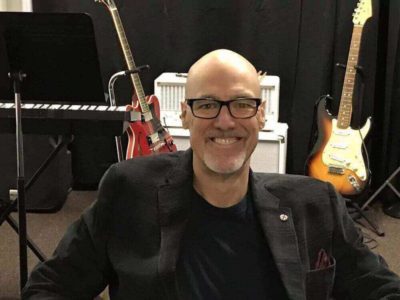

Formantology: Adding Analysis to Intuition When It Comes To Vowels for Singing
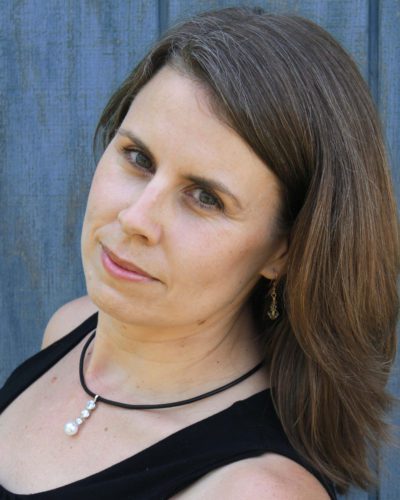

Coined by Scott McCoy in his article of the same name in 2013, “formantology” is an exploration of the ways the resonances of the vocal tract move and change between vowels and how they interact with harmonics to create formants. This presentation will focus on the basics of acoustic phonetics and then go further to explore the similarities and differences between the resonance strategies of children and adults and the ways registration and vocal style impact vowel choices.
Kelley Hijleh is a VoceVista practitioner, educator and consultant, and the Associate Director of the Singing Voice Science Workshop. She was mentored in vocal acoustics by Dr. Donald Miller (1933-2020) for 15 years, and has been an invited presenter and discussant on Voce Vista and vocal acoustics at The Voice Study Centre, SUNY-Fredonia, Syracuse University, Illinois State University, at the Voice Pedagogy Summit II in Los Angeles, and with Richard Lissemore at the NATS Eastern Regional Conference. Her article Realizing the Benefits of SOVTEs: A Reflection on the Research co-written with Cory Pinto appeared in the Journal of Singing in 2020. Ms. Hijleh holds a Bachelor of Music degree and a Graduate Performance Diploma from the Peabody Institute of the Johns Hopkins University in voice performance. She has appeared as a soloist with the Rochester Philharmonic, the Buffalo Philharmonic, and the Ashland Symphony. In 2014, she was the soprano soloist for the premiere of Cantate Domino by composer David Davies at Carnegie Hall and was also a featured soloist at the Christian Fellowship of Art Music Composers National Conference at Biola University. She served on the faculty at Montclair State University from 2015-2021 teaching studio voice, vocal pedagogy and diction. Ms. Hijleh recently moved to Black Mountain, NC where she maintains a private studio, teaches voice at Montreat College and consults and presents on VoceVista and vocal acoustics.


MaryAnnKehler is best known for her work as a voice teacher; she is also a theatre director, audition coach, and best-selling author. Her students include musical theatre professionals; pop recording artists; lead singers for rock, country, and bluegrass bands; club musicians; singer/songwriters; classical choral soloists, worship leaders, and voice teachers. She is skilled at voice habilitation and is a “go-to” for keeping professional voices working. Mary Ann is proud to serve as President of International Voice Teachers of Mix and is an IVTOM Mentor Teacher. She happily travels the world, training voice teachers and helping singers, and has presented in many voice conferences and theatre education events. She calls Denver, Colorado, USA home.
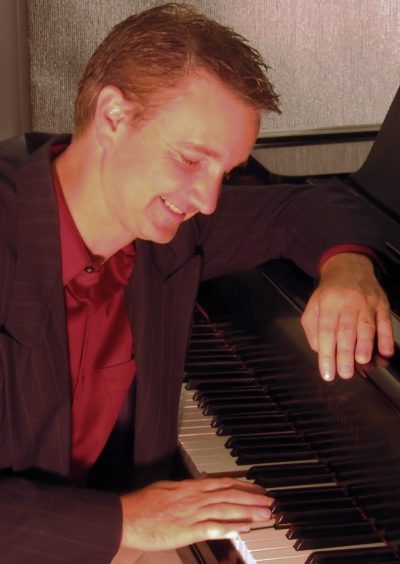

Defining Mix: Many teachers claim to teach Mix, but the sounds and approaches vary greatly. Is it possible to define Mix and is it the best approach to vocal training? Q&A follows.
Adapting Mix to today’s Popular Styles of Singing: Working with singers that don’t want to change their sound, but want to save their voice. Is Mix flexible and if so, how far can it bend before it is no longer Mix? Q&A follows.
Dean Kaelin has been teaching voice for 40 years and has taught over 100,000 lessons. He has taught and conducted workshops throughout the world. He is the founder of Ivtom (The International Voice teachers of Mix) and served as President from 2009-2016. He is currently the Education Advisor for Ivtom as well as a Mentor Teacher. He trained with Seth Riggs and worked as his personal accompanist. He was a Level 5 Instructor in the Speech Level Singing Organization and served as the Point IMT with responsibility for worldwide education advancement of the technique. He has been the voice coach for Star Search Winners, American Idol finalists and his students have performed on Broadway, signed major record deals and have performed at every major Theme Park in the U.S. He has a degree in Jazz Composition from the University of Utah and a Masters Degree from Brigham Young University. He was an Associate Professor of Music at Westminster College in Salt Lake City for 7 years.
Tongue Postures and Formant Tuning


Barbara Sambor – actress (graduate of the Acting Department of the Film School in Lodz), media speech therapist, neurologist, lecturer at the Acting Department of the State Higher Theater School. L. Solski in Krakow and at the Institute of Polish Language at the University of Silesia in Katowice. Her research interests include research on biological processes influencing the articulation and phonation of people professionally using the voice, dysfunctions of the masticatory system, problems in the field of pathophonetics and neurogenic speech disorders. It deals with, among others speech therapy for people professionally using voice and neurologopedic rehabilitation.
The Imposter Syndrome, Who Me?
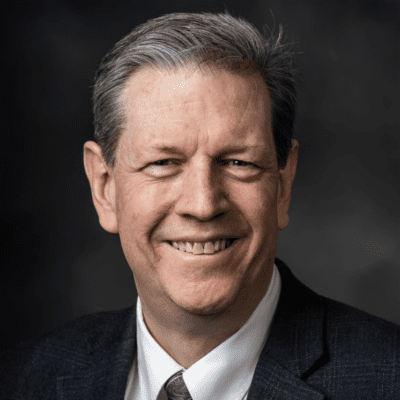

Imagine for a moment that somewhere inside of your head is a cast full of all types of “characters.” Some are supportive of you, the Performer, while others seem to have their own agenda. Among these characters is a Director that is managing the show. There is a Performer that wants to be free to shine in the spotlight. There is an Imposter that wants to usurp the Director and steal the spotlight from the Performer. We will be learning specific tools to befriend the Imposter, empower the Director and liberate Performer. Dr. Jon will be joined by songwriter Kristen J. Lloyd who will share her story and perform her original, My Brave.
Jon Skidmore, Psy.D. is a licensed clinical psychologist, performance coach, educator, researcher, author and singer. He believes that the path to peak performance starts between the ears and he loves to talk about the brain as a peak performance tool and how to create an optimal performance mindset.
In March 2020, Dr. Jon co-authored Conquer Anxiety: How to overcome anxiety and optimize your performance. Dr. Jon is on the faculty of the Brigham Young University School of Music and teaches The Psychology of Music Performance. He has worked with performers of all ages and stages. He has presented internationally, the local junior high school, to the top colleges and music schools such as Julliard. He has a private psychological practice in Orem, Utah. He does a weekly free webinar Conquer Anxiety Now! which you are all invited to attend. His Singer’s Path to Peak Performance is a great program for singers of all ages to develop a powerful mindset to maximize their skill set. He has developed a program to certify voice teachers in the skills of peak performance coaching through IVTOM.
The Leggiero Tenor Voice


The Leggiero Tenor voice is one of the most complex, and frequently misdiagnosed voices of the entire human voice spectrum. In this masterclass, observers and participants will hear how Jeff discovered he was a leggiero, and he will teach participants how to recognize a true leggiero tenor voice, while offering exercises and concepts that teachers can add to their Mix toolbox to train this specialized voice type, and maximize it’s potential. Jeff will vocalize and coach 3 singers who are, or may be, leggiero tenors for the class. Q&A follows.
Jeff Alani Stanfill is a full-time vocal coach/owner of Voice Soaring Studios LLC in West Orange, New Jersey. He has been teaching voice for over 22 years to singers from the genres of Musical Theater, Contemporary Commercial Music, Gospel, Rock and Opera. Jeff brings his many years of vocal studies with Maestro David L. Jones, and the late Leona Mathews, as well as decades of performing experience to each and every lesson. He has coached some of the top performers on Broadway including Constantine Rousouli, Jelani Remi, and Contemporary Christian recording artists such as David Phelps. His co-masterclass with Mr. Phelps was a life changing experience. Jeff is passionate about teaching voice while maintaining a busy performing schedule with the 80’s cover band Fast Forward 80’s where he gets to use his leggiero tenor voice for the music of Journey and more.
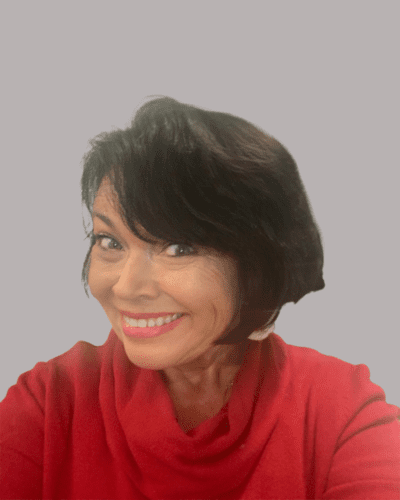

A Practical Approach for the Voice Coach as First Responder.
Revisiting a critical subject: What do I hear? What is my next step? You’ll hear audio recordings of singers who present in studio with previously undiagnosed pathologies and/or technical voice issues, decide what YOUR next step would be, and then hear/see evidence of the actual diagnosis along with recommendations for treatment/rehabilitation/habilitation.
Teri Stock is a vocologist and voice teacher who has sung and performed all her life and has taught for the past 22 years. She was a founding member of IVTOM, serves on the Board of Directors, and been a mentor teacher since that program was created. She has also served as Mentoring Director and Area Coordinator Director.
Teri loves mentoring singers and teachers. She also has an interest in and sought training to help singers who have vocal injuries. She worked with Intermountain Voice and Swallowing Center as a Singing Specialist, 2014-2019. In 2019, Teri certified as a vocologist under the tutelage of Dr. Ingo Titze and other distinguished vocologists at the National Center for Voice and Speech. In 2020, she and her husband, Curt R Stock, MD, were honored to co-author the forward for the book Singing Through Change: Women’s Voices in Midlife, Menopause and beyond, written by Nancy Boy, Joanne Bozeman, and Cate Frazier Neely.
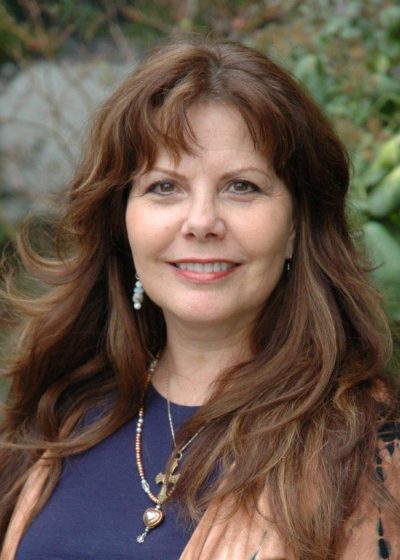

Anna Siciliano, M.A., CCC/SLP, received her B.S. from Utah State University, and her M.A. in Speech Pathology from University of Houston (Texas). She completed postgraduate training at Baylor College of Medicine at The Texas Voice Center. Anna was trained by Laryngologist Dr. Dick Stasney and was one of the first Speech Pathologists to be trained in rigid and flexible laryngoscopy. Anna was also an adjunct professor at the University of Houston where she taught the graduate level course on Voice Disorders. In 1997, Anna returned to Utah and was hired by Dr. Marshall E. Smith to work at The University of Utah’s Voice Disorders Clinic. In 2004, Dr. Smith and Anna opened Intermountain Voice and Swallowing Center at LDS Hospital in Salt Lake City. She held the position of Program Coordinator for 13 years. Anna also served on the planning committee for the National Center for Voice and Speech and is a member of IVTOM’s medical advisory board. She serves as an externship supervisor for Speech Pathology graduate students from Utah State University, The University of Utah and BYU.
As the recipient of the Utah Speech and Hearing Association (USHA) Outstanding Achievement Award in 2009, Anna lectures widely on issues relating to swallowing and singing. She is also certified in the Lee Silverman LOUD Voice Treatment program for those with Parkinson’s disease and other neurological disorders. For patients with severe swallowing disorders, Anna is certified in the use of NMES Vital Stim.
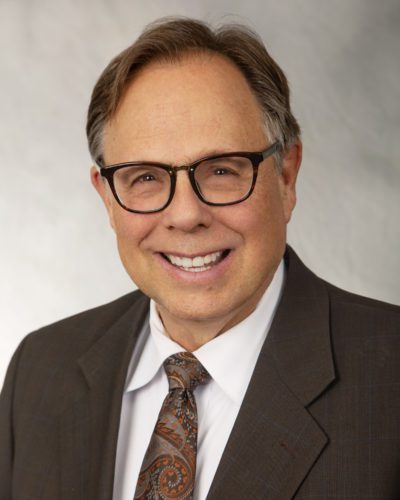

The Nose, Singer’s Friend or Foe?
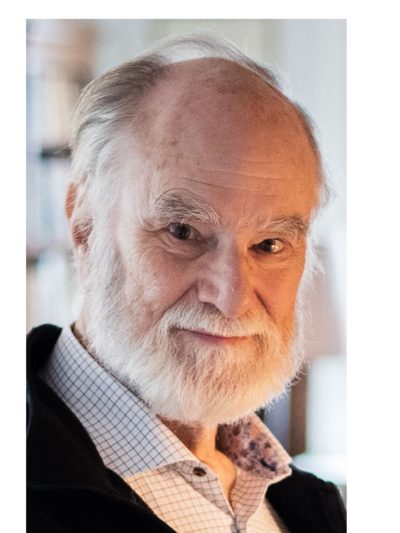

Many singing teachers agree that a narrow passage leading to the nose can be beneficial to the timbre of the voice, while many others have the opposite opinion. Three experiments will be described, the purpose of which was to show how such a passage affects the sound produced. The results indicate that the paranasal cavities absorb sound but also that the nose can enhance the high frequency components of vowel spectra without causing the voice to sound nasalized. Q&A follows.
Johan Sundberg, born in 1936. 1966 PhD and docent in musicology Uppsala University; 1996 honorary doctor at the University of York, UK; 2014 at the National and Kapodistrian University of Athens, Greece; and 2016 at the Université de Liège, Belgium. Presently Emeritus professor of Music Acoustics at the Department of Speech Music and Hearing, KTH (Royal Institute of Technology), Stockholm, Sweden. He early became interested in the acoustical aspects of music, leading to his doctoral dissertation on the acoustics of organ pipes. After the dissertation, singing voice and music performance have been his main research topics. He established and led the Music Acoustics Research Group at KTH from 1970 to 2001. In Musikens Ljudlära (translation: The Science of Musical Sounds) he presents acoustic aspects of music in popularized form to interested musicians and laymen. In Röstlära (translations The Science of the Singing Voice, Die Wissenschaft von der Singstimme, Ciência Da Voz) physiological and acoustical properties of the singing voice are described and explained.
As the President of the Music Acoustics Committee of the Royal Swedish Academy of Music, he has been the editor of eight volumes in a series of proceedings of public seminars on music acoustic themes arranged in Stockholm since 1975. In 2019 The Voice Foundation awarded him the Johan Sundberg – Ingo R Titze Award for Creativity in Voice Science. Sundberg has also had extensive experience of performing music. For 24 years he was a member of the Stockholm Bach Choir, 9 years as its president. He studied singing with Dagmar Gustafson and made his public debut with a Lieder recital on his 50th birthday. He is a member of the Royal Swedish Academy of Music, of the Swedish Acoustical Society (President 1976-81) and a fellow of the Acoustical Society of America.
